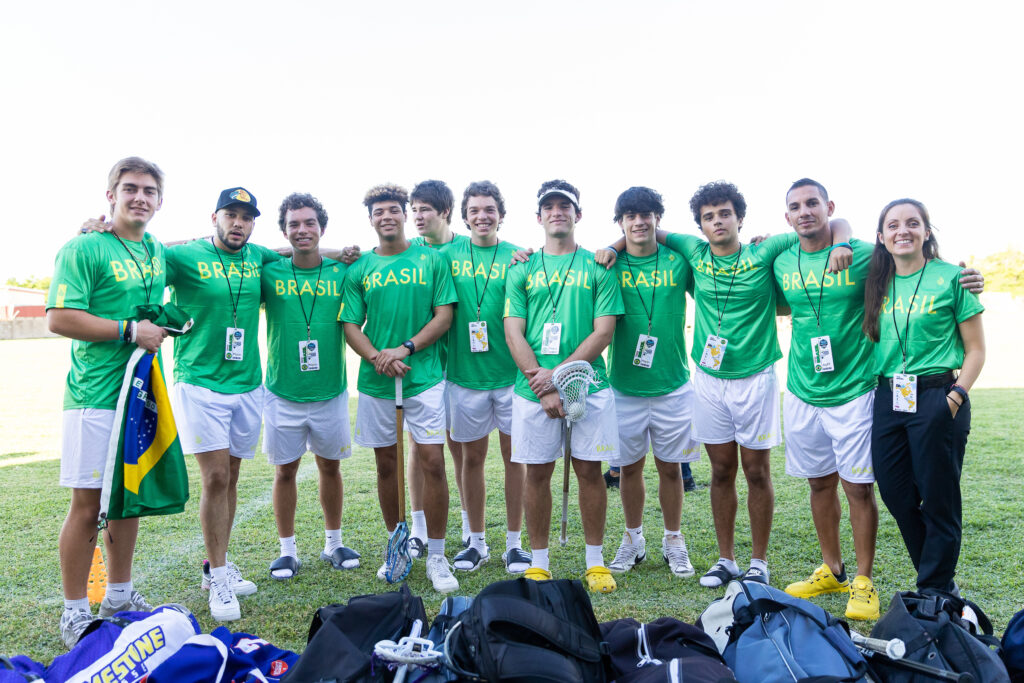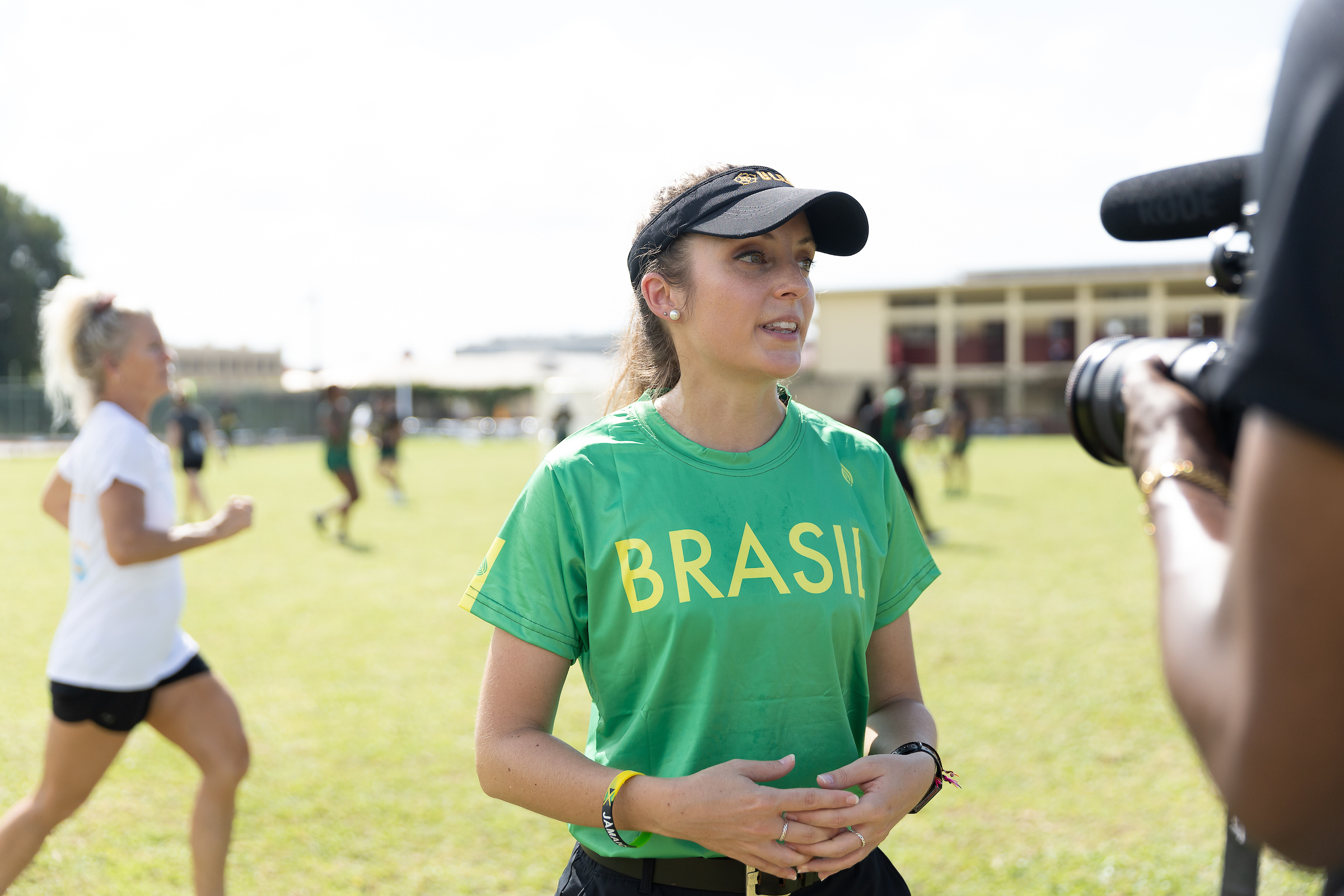One of lacrosse’s key tenets is how equitable the sport is across gender, with the men’s and women’s sides of the sport growing in parallel. The International Federations established for the two genders in the 1970s, merging in 2008 with a united vision of returning to the Olympics.
That vision has been realized, and women’s lacrosse is on the precipice of exploding onto an even bigger stage. But another area of the sport that also on the verge of great opportunity is the pathway for women’s coaches to succeed at the highest level, in both men’s and women’s lacrosse.
There are more women’s coaches than ever in women’s collegiate lacrosse in North America and women’s international lacrosse. But there is room to grow for women’s coaches to take on even more positions and break boundaries by coaching men’s lacrosse.
Liz Robertshaw, the executive director of the Intercollegiate Women’s Lacrosse Coaching Association and head women’s lacrosse coach at Boston University, believes the key to this growth starts with expanded opportunities.
“There’s an explosion of opportunity with over 570 women’s programs across our collegiate division,” said Robertshaw. “If you want to coach, you can find a home and do it all over the country. Globally, membership at World Lacrosse is growing with even more teams participating and there’s even more opportunities for women’s coaches.”
For too long, that kind of opportunity wasn’t there for women’s coaches.
“I think what we’ve seen is that women have to bang down doors or prove themselves even more than they should have to for the same opportunities men get,” said Robertshaw. “We’ve seen that for decades with men coaching women’s lacrosse, and we need to ask important questions: Is the space welcoming? Are the same questions being asked of men’s and women’s coaches, and are they being treated the same in the interview process?”
Robertshaw believes that sports transcend gender and that gender should not be a determinant in being a good coach. This extends to men’s lacrosse, where women are just starting to break through into head coaching roles.
One such example is Cristina Vélez, who recently coached the Brazilian men’s team at the Pan-American Lacrosse Association Sixes Cup in Kingston, Jamaica, in November.
Vélez, with a background in development at World Lacrosse and experience coaching youth internationally, found herself unexpectedly coaching the Brazilian men’s team. Brazil is one of the newest members of World Lacrosse, and Vélez had worked with the federation before on two separate visits while also serving as a liaison between players in Brazil and players in the United States with Brazilian heritage.
The team was looking to make its international competition debut with an eye on the PALA Sixes Cup, but it was going to be hard to field a team. A men’s team was eventually put together with a group of very young heritage players with Vélez’s help in coordination.
“I give kudos to both groups for supporting each other and to the players who took a chance on this very new organization,” said Vélez.
The men’s team needed a coach, and the Brazilian federation asked Vélez to step in, given she knew the players well. The federation specifically wanted a woman to coach its team to further opportunity for women’s coaches, a trend in line with other men’s sports in Brazil, such as beach volleyball and judo.
“I was very touched and honored by the request, but I wasn’t sure about doing it myself, and I told the federation I would find them the best coach I could,” said Vélez.
Vélez asked her network, and it wasn’t until she connected with Scott Ratliffe, a former Premier Lacrosse League player and the founder of the Give and Go Foundation, that the solution became apparent.
“He said, ‘I know who this coach is, and it has to be you,’” said Vélez. “His foundation supported my trip to Kingston to help be a part of something groundbreaking for the sport.”
Vélez went on to become one of the first coaches of a men’s lacrosse team in international competition, as Brazil made its debut and won its first competitive match in the process.

“Being in Jamaica and seeing these young guys grow as athletes and people was a truly moving experience,” said Vélez. “I didn’t want the job originally, but that reluctance for women to see themselves in these kinds of roles was part of the issue. I was motivated to try and set an example, and luckily this opportunity fell this way. I think it’s so exciting to be a part of forward progress for lacrosse.”
When Vélez was searching for coaches for Brazil, she reached out to Maiah Bartlett, who had been a coach of the Luxembourg men’s team in 2020.
Bartlett shared with Vélez how excited she was about the glass-shattering moment and sharing the stage together as women coaching men’s teams.
“I think people lose sight of how many different aspects go into coaching,” said Vélez. “It’s more than just Xs and Os, and with such a young team, there was a lot of emotional management and trying to help them be their best selves.”

“I know I’m not an NCAA Division I coach, but I felt like I worked well with the group because we collaborated towards change instead of me talking at them as much,” continued Vélez.
Overall, Vélez found that numerous conversations were started with her role, with a poignant example of coaches introducing themselves at a meeting with the gender of the team they were coaching, instead of going off the assumption that men were coaching men’s teams and women were coaching women’s teams.
“Even those little nuances or lexicon changes are really big for pioneering change in this space,” remarked Vélez. “It just happened organically, but it was important.”
In her work with the IWLCA, Robertshaw wants to see more examples like Vélez of women coaching in men’s lacrosse, highlighting the need for change.
“It’s rare, but something that needs to be addressed,” said Robertshaw. “With men’s coaches in women’s lacrosse we accept that they bring their vantage points and experience to the women’s side of things. Who’s to say that women can’t do the same the other way?”
Robertshaw thinks sixes, in particular, is a massive opportunity to value women’s perspectives on the game.
“People immediately turn to men’s box lacrosse coaches for sixes, but I would urge them to look at women’s coaches,” said Robertshaw. “Women have coached small-sided lacrosse for years, and the women’s game is faster, has more space and less specialization than men’s lacrosse, where you see them set up their offense a bit more.”
“It’s a natural fit for women’s coaches,” continued Robertshaw. “There’s this untapped market and when countries open their mind to these opportunities, we’re going to see explosive results.”
Both Vélez and Robertshaw echoed the need for more stories and more amplification of women’s coaches overall to inspire change.
“I think you need these big visual examples that reach larger audiences because that creates conversations,” said Vélez. “I don’t think women believe in themselves sometimes to take that leap to a higher level and we need to change that.
“Exposure and education matter so much so we can see more females putting their name in the ring if it’s of interest to them,” said Robertshaw. “When we tell more stories like this, people’s minds spark. I don’t think that many female coaches see the possibility to coach in the men’s space. Seeing it more can help them believe the opportunity is real.”
Robertshaw stressed that ultimately, more decision-makers need to give women a chance, highlighting examples in other sports, such as Becky Hammon, who was an assistant coach in the NBA and has now won two WNBA titles, and Kim Ngo, the first woman to serve as the general manager of a team in the MLB, helping the Marlins make the playoffs in her third season.
“We need more education to create a pipeline of women’s coaches,” said Vélez. “If we change the mentality to getting women involved earlier in the decision-making process, we can help lacrosse be more fully realized as an equitable sport that changes lives.”






